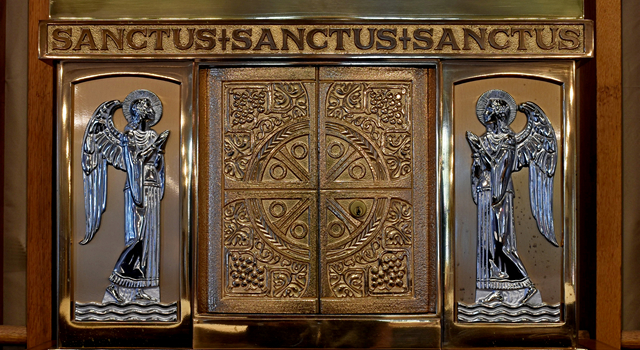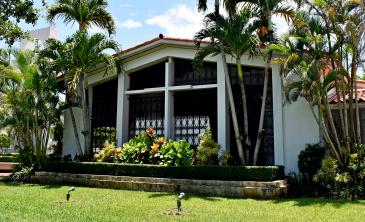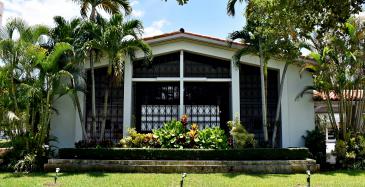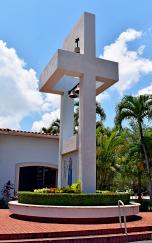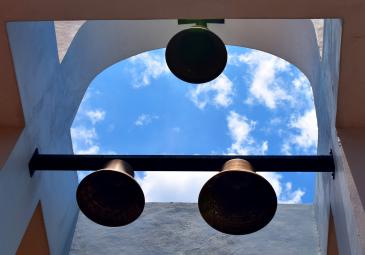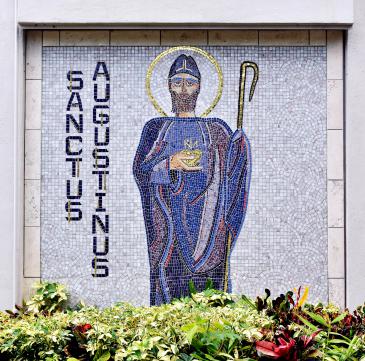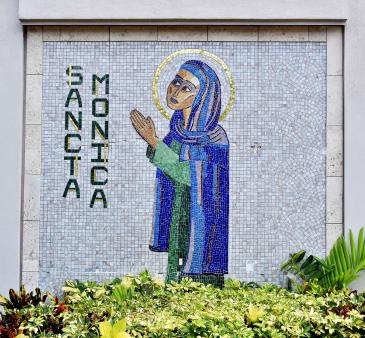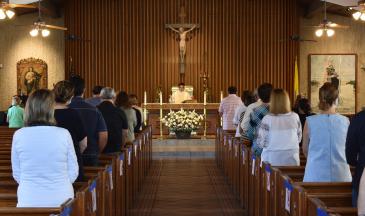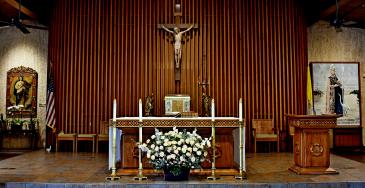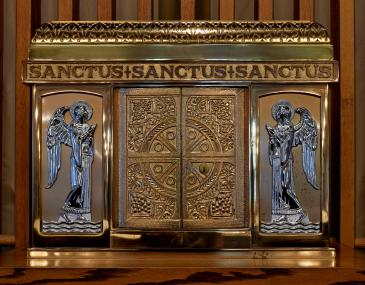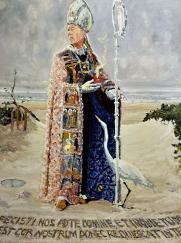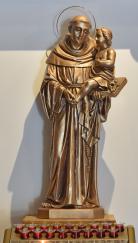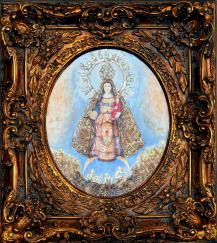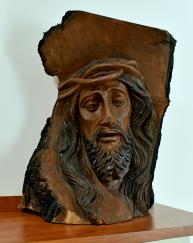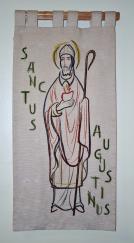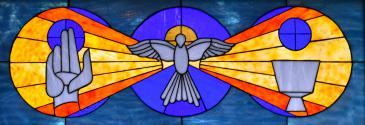By Jim Davis - Florida Catholic
Photography: Jim Davis
CORAL GABLES | St. Augustine didn't swing a sword or strap on armor. But just as soldiers have wielded steel to secure kingdoms, Augustine used intellect and rhetoric to defend the borders of Christian belief.
Augustine, who lived in the fourth and fifth centuries, opposed the Manichaeans, who set reason over faith and taught a divided world of dark versus light.
He fought Pelagianism, which denied the doctrine of original sin and taught that people could reach perfection without God's help.
He defended orthodoxy against the Donatists, a separatist sect of northern Africa, who fixated on sin more than God's grace.
Centuries after his death, he is still revered as one of the Church's greatest thinkers.
Born in 354 in Tagaste in what is now Algeria, northern Africa, Augustine at first showed little sign of his future greatness. He was raised as a Christian, and his parents gave him a first-class education in Madauros, then in Carthage.
As a young man, however, he plunged into a life of women, theaters and parties — so thoroughly that he is still known as the patron saint of brewers. He even took a mistress and sired a son, who died in adolescence.
He became a professor of grammar and rhetoric, the art of persuasive speaking and writing. In 384 he taught in Milan, where he was captivated by the powerful, eloquent sermons of St. Ambrose, bishop of the city. He was also swayed by the New Testament command to "put on the Lord Jesus Christ" and forsake fleshly lusts.
Augustine regained his faith in 386 and was baptized the following year. The decision fulfilled years of prayer by his mother, Monica, who is herself honored as a saint.
Returning to north Africa, Augustine became a preacher in the coastal city of Hippo. The city's bishop made him coadjutor; then Augustine succeeded him as bishop in 395.
As much as Augustine had thrown himself into hedonism, he served Christ with equal zeal. He gave his goods to the poor and founded a laymen's monastery in one of his former family estates.
He wrote and spoke against heresies of his day, sometimes winning public retractions from his opponents. He preached often and prayed with fervor. "Too late have I loved you!" he famously cried out in one prayer.
Augustine held out to the end against his last two enemies. One was an army of Vandal barbarians, who laid an 18-month siege of Hippo. The other enemy was a fatal illness, which took him in 430 at the age of 76.
But his writings — an estimated five million words' worth — survived and fortified the Church. His best-known works include "On the Trinity," discussing the nature of God; "Confessions," on his journey from love of the world to love for God; and the monumental "City of God," a 22-volume treatment of philosophy, theology and history.
His single best-known quote: "You have formed us for yourself, O Lord, and our hearts are restless until they rest in you."
Even the Protestant Reformation benefited from Augustine's teachings. Two pioneers of the movement, Martin Luther and John Calvin, incorporated his emphasis on God's grace in offering salvation.
The saint's intellectual legacy is well suited for St. Augustine Church and Catholic Student Center, which borders the University of Miami. The student outreach, in fact, came first; the late Bishop Coleman F. Carroll broke ground for it back in 1959. It didn't become a parish until a decade later.
St. Augustine parish holds events like student retreats and small group meetings, and even teaching series via social media. The youths of St. Augustine have served as well, building homes, schools and orphanages around the Caribbean. They’ve also helped build houses in Miami in cooperation with Habitat for Humanity.
